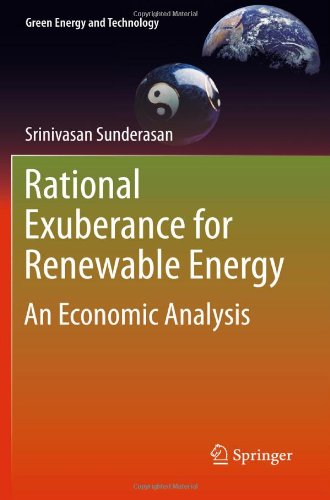

Most ebook files are in PDF format, so you can easily read them using various software such as Foxit Reader or directly on the Google Chrome browser.
Some ebook files are released by publishers in other formats such as .awz, .mobi, .epub, .fb2, etc. You may need to install specific software to read these formats on mobile/PC, such as Calibre.
Please read the tutorial at this link: https://ebookbell.com/faq
We offer FREE conversion to the popular formats you request; however, this may take some time. Therefore, right after payment, please email us, and we will try to provide the service as quickly as possible.
For some exceptional file formats or broken links (if any), please refrain from opening any disputes. Instead, email us first, and we will try to assist within a maximum of 6 hours.
EbookBell Team

4.0
76 reviewsRational Exuberance for Renewable Energy is a beyond-the-hype account of the underlying issues that encourage or plague widespread dissemination of renewable energy (RE) technologies. Renewable energy operates in the real world, and it cannot be assumed that the conventional theories and incentive structures of economics and business do not apply. The author argues that grants and subsidies could be provided to support research, development and technology improvement efforts, but should not be employed as an instrument of state policy to intervene in specific markets. It is important to recognize that although investors often demonstrate an appetite for market risk, they find technology risks and policy uncertainty much less appealing.
Rational Exuberance for Renewable Energy blends classical economic theory with the everyday realities of the RE industry to identify incentive structures contributing to the success – or otherwise – of project implementation involving renewable sources and appropriate technologies. The book is a compilation of articles that analyze individual RE technologies, and offer multiple perspectives of the RE industry and markets.
Rational Exuberance for Renewable Energy is intended for policy makers, advanced students of energy economics and sustainable development, and for potential mainstream investors.